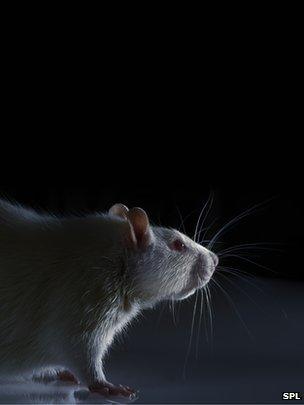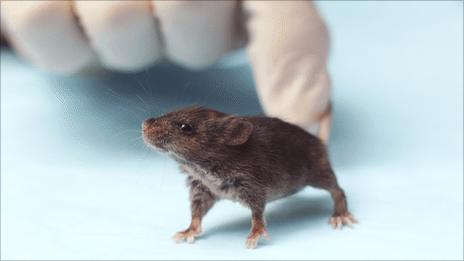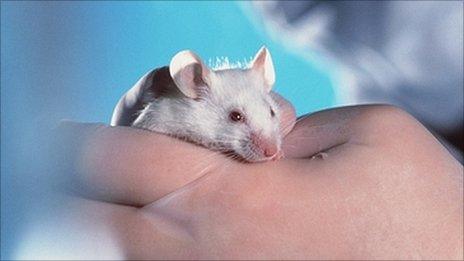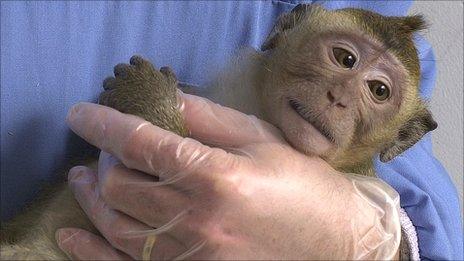Q&A: Animal research
- Published
- comments

Animal studies "have contributed greatly to scientific advances", a Parliamentary report found
News that all ferry companies and all but two airlines have stopped importing animals destined for research laboratories has led to warnings that it could setback the search for new medicines. But how important are animals in medical research and what are they used for?
How much animal research is there in the UK?
There were 3.7 million "scientific procedures" on animals in 2010 according to figures from the Home Office. This total includes the breeding of genetically modified animals which nearly half that total. Excluding breeding, the number of procedures was 2.1 million.
The UK has among the strictest rules in the world. Licences are permitted under the 1986 Animals (Scientific Procedures) Act only when there is no non-animal alternative, the expected benefits outweigh the effects on the animals, and the number of animals used and their suffering is minimised. France and Germany carry out roughly the same number of procedures as the UK each year.
What sort of animals are used?
The vast majority of animals used are mice (72%), fish (13%), rats (8%) and birds (4%). Dogs, cats and non-human primates account for less than 0.5% of procedures. The range of tests is broad, but the largest single category - 466,000 procedures - involve the immune system, followed by the nervous system. All new drugs have to undergo safety testing (toxicology) involving animals. Nearly 400,000 such tests were carried out in 2010.
Why is animal research needed?
Every major medical research body agrees that animal research is essential in the quest to understand human diseases and to develop new treatments. Advances in the understanding of genetics mean that animals can be bred with specific genetic traits that allow researchers to explore a range of conditions from cancer and heart disease to stroke and dementia.
There have been numerous inquiries looking into the issue. In 2002 a House of Lords select committee report, external into animal research concluded: "We are convinced that experiments on animals have contributed greatly to scientific advances, both for human medicine and for animal health." In 2006 the Weatherall report, external commissioned by the Academy of Medical Sciences, the Royal Society, Medical Research Council and Wellcome Trust concluded there was a "strong scientific and moral case" for using non-human primates in research.
Is animal research ethical?
Animal research has always been controversial. Many people strongly oppose the use of any animals in experiments arguing they are cruel and unethical. The British Union for the Abolition of Vivisection (BUAV), external has campaigned for more than a hundred years to end all animal experiments. Repeated public opinion surveys over the past decade have shown strong support for the research - on the crucial proviso that it meets certain conditions: there is no unnecessary suffering, it is for serious medical or life-saving purposes and there is no alternative.
Is animal research useful?
Opponents of animal research believe it is not simply cruel but pointless. Animals are not humans and many species do not get the same diseases as us. But despite the differences, animal models - mostly mice - are seen by the scientific community as vital in the quest to understand disease. Leading scientists point to a wealth of medical advances which have been made with the help of animal research. These includes new vaccines, treatments for cancer, Parkinson's disease, asthma and HIV. Last year a review led by Prof Patrick Bateson, external into research involving monkeys found the work was generally useful and should continue. But it said that for nearly one in 10 projects, no clear scientific, medical or social benefits had emerged.
- Published22 July 2011

- Published14 July 2011

- Published27 July 2011
